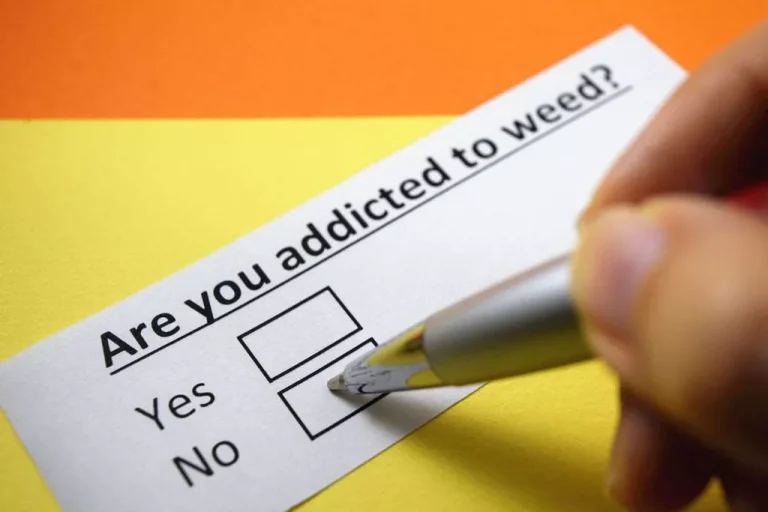Weed Overuse: Is Marijuana Addictive?

Marijuana, better known as weed, pot, ganja, and cannabis, is one of the world’s most popular drugs. While cannabis was in the past seen as an illegal narcotic in America, it is now allowed to be consumed medically and recreationally in many states. So it is important to keep in mind the risks of marijuana addiction and health concerns. As more places make cannabis legally accessible, people must be aware of all possible implications.
What is marijuana
Marijuana is a narcotic derived from the flowers of the Cannabis sativa plant. It is a grey-green dried flower mixture that is used for recreational aims due to its mind-altering ability. Another narcotic found in cannabis is its resin, called hashish.
Hemp contains about a hundred cannabinoids, the most famous of which are Tetrahydrocannabinol (THC) and cannabidiol (CBD). THC is the basic chemical compound that changes consciousness, while CBD can reduce inflammation and act as a pain reliever. From a scientific point of view, there are many unexplored points regarding marijuana. Researchers have yet to gather more insights about THC and CBD and explore various cannabinoids.

Take back control of your life and start on the road to recovery now.
What does a person feel when consuming weed?
There are several variants of marijuana intake; it is usually smoked as a hand-rolled cigarette, pipe, or hookah; cannabis fume has a sharp, sweet, and sour flavor. With this consumption, the user experiences the effects of the narcotic immediately after the TCH and other chemicals travel from the lungs to the bloodstream and various systems.
Another variant is mixing flowers, stems, and seeds and adding them to the meal (candy, cakes, cookies) or brewing tea from the leaves. In this situation, the person will feel the narcotic’s result in an hour since it must first pass via the gastrointestinal tract.
The effects of taking weed can vary greatly. Some say they experience euphoria, a change in their feelings (touch, taste, smell), a modification in their perception of time, etc. Other adrenaline seekers admit to experiencing panic, fear, and anxiety.
Is marijuana addictive?
Addiction is more likely to come from narcotics such as cocaine or alcohol. Still, you may also become addicted to marijuana, so it will be sophisticated to stop smoking it. About 3 out of 10 Americans who consume ganja suffer from cannabis use disorder, the medical term for marijuana addiction, according to the U.S. Centers for Disease Control and Prevention. Such an ailment leads to the consumption of narcotics becoming uncontrollable and negatively affecting a person’s life. He cannot perform his duties at home or work, and signs of physical dependence and health troubles occur.
Withdrawal ailments, which are thought to be indicative of physical dependence, can occur if a human who has previously used ganja frequently or even daily suddenly stops consuming it or severely decreases the dose. Attempts to quit cannabis may be very stressful and painful, so the person will return to weed consumption again to facilitate withdrawal signs.
Various programs, like cognitive behavioral therapy and the reward system for patients who have quit drugs, have proven effective in treating marijuana addiction. While there are no effective medicines to treat weed abuse yet, recent research in the industry holds promise for medications that block the intoxicating properties of the pot and prevent relapses.

How marijuana affects the organism
People intake weed for many reasons; some want to relax after routine work, and others seek to eliminate physical or mental illnesses. When a person starts to abuse cannabis, they experience both short-term and long-term effects from taking the drug. If you consume weed, strong drinks, or other narcotics, you can grow a negative impact on the organism.
Short term action
When anyone consumes marijuana, it enters the bloodstream and into various organs. THC interacts with cannabinoid receptors in the brain and causes a high. The most famous effects when smoking ganja are:
- troubles with coordination of movements,
- difficulty concentrating,
- mood change,
- memory lapses and concerns with the educational process.
A person becomes addicted to this high, which allows him to escape reality for a while. The effect may last from a few hours to days, depending on the dose, the method of consumption, the level of tolerance, etc.
Long term action
Permanent intake of drugs may seriously impair your health, especially if you smoke cannabis. It negatively affects your respiratory system, making you more prone to lung diseases, including pneumonia or bronchitis. Consider other long-term prospects:
- increased risk of cancer,
- damage to the central nervous system,
- chronic anxiety and depression,
- difficulty remembering information,
- fertility troubles.
Prolonged consumption of ganja can lead to brain damage and cognitive impairment. If a human had psychological problems before using weed, his condition might worsen. People with schizophrenia may experience increased signs, and even psychosis can begin. Therefore, it is critical to comprehend how to stop marijuana addiction.
Risk factors for an addiction
Various risk factors raise the probability of arising an addiction. Many people admit they started consuming narcotics in adolescence because it is a disease of young men. Let’s analyze other signs that make people more prone to marijuana addiction:
- men are more likely to overuse weed,
- the presence of different habits, e.g., cravings for tobacco or alcohol,
- problems in the family, misunderstanding on the part of parents or husband/wife,
- friendship with people who consume cannabis,
- the desire to experience something new, a predisposition to rash acts,
- low self-esteem.
The presence of psychological illnesses, including depression, anxiety, and post-traumatic stress disorder, also raises the risks. Some people self-medicate with ganja; the more intensively a human consumes it, the higher the risk of developing marijuana addiction.
Signs of marijuana overuse
The American Psychiatric Association has made a guide to mental illness, which defines 11 criteria for marijuana addiction, which are conditionally divided into four groups. If you meet at least a few of these criteria, experts qualify you as a person who abuses drugs.
Loss of control:
- You take more weed or more often than you intended.
- Spend more time looking for or smoking cannabis.
- You cannot control your urge to drink pot.
- Attempts to stop using ganja or reduce doses have been unsuccessful.
Problems in interpersonal relationships:
- Giving up other social activities for marijuana intake.
- Regular family conflicts based on narcotic addiction.
- Violation of liabilities at work or home due to cannabis.
Understanding the risks of consumption:
- Getting into dangerous situations due to attempts to get ganja or due to its consumption.
- Prolonged use despite awareness of adverse effects.
Physical ailments:
- Tolerance occurs – you must raise the drug dose to get the desired effect.
- After you stop consuming weed, you will notice withdrawal signs, including sleep disturbances, mood swings, depression, loss of appetite, etc.
If you notice the first signs of marijuana addiction in yourself or your loved ones, we recommend you immediately seek professional assistance. To isolate a person from friends with whom they used to intake weed, you can consider moving to Boston’s Eco Sober Houses.

Marijuana withdrawal signs
Withdrawal from cannabis after prolonged consumption results in withdrawal symptoms that develop within seven days of the last dose. Most often, patients complain of such ailments:
- irritability, outbursts of anger and aggression,
- anxiety and nervousness
- long-term insomnia
- lack of appetite and quick weight loss
- depression
- physical conditions, including abdominal pain, limb tremors, increased sweating, headache, fever, etc.
Many of these signs overlap with other conditions and diseases. Therefore, a professional assessment by a healthcare specialist is required to define current risks, how long does weed stay in your body, and how to minimize the withdrawal signs.
Marijuana addiction therapy programs
There are different variants of how to treat marijuana addiction. It is critical to choose an individual, easily accessible type of rehabilitation that will help get rid of concurrent ailments, including psychological disorders. You can seek help in a rehabilitation center or undergo outpatient treatment depending on your needs and desires. Most often, people prefer such marijuana addiction therapy programs:
- Educational activities: people create many myths about the effects of weed on the human body. It is critical to inform the patient about how ganja works and the aftermath of its intake.
- Ambulatory treatment: there are many ways to get rid of narcotic overuse. Rehabilitation centers offer individual and group therapy, where patients can eliminate misuse and address the psychological problems underlying cannabis abuse. The willingness to experiment with various schemes raises the chances of success.
- Medication: there are no medicines that help overcome marijuana addiction. Doctors prescribe drugs to eliminate other ailments connected with weed abuse, including insomnia and various mental disorders.
- Detoxification is the first step all patients who plan to stop abusing narcotics must go through. We recommend that you undergo detoxification under a specialist’s control to reduce the manifestations of withdrawal syndrome.
Marijuana is one of the most popular narcotics in the USA. About 110 million people (more than 30% of the population) admit that they have taken weed at least once. The main trouble with pot is that most people are sure that ganja does not have the same harmful effects as other narcotics or strong drinks.

This can be a difficult journey, but you don’t have to go it alone. Let us be your guide and provide you the environment needed to regain control of your life and begin the path to recovery.
Final thoughts
Narcotic addiction is a chronic disease that requires you to always control your actions, even after recovery. Individuals should learn critical strategies, such as how to lower weed tolerance, to drive their journey to healthy life. The last stage of the marijuana addiction treatment process is aftercare planning. After medical procedures, taking care of yourself is an excellent option to avert a relapse. While in therapy and interacting with professionals, it’s time to plan your future.
Many patients today select to move to a sober home, e.g., Eco Sober House. Tenants of this cozy residence in a picturesque area of Boston can complete a 12-step alcohol and narcotic withdrawal program while doing their usual activities: going to work or college, meeting friends, and engaging in self-development. The primary condition is the complete rejection of narcotics and alcohol. Today is the best time to change your life!




